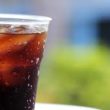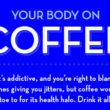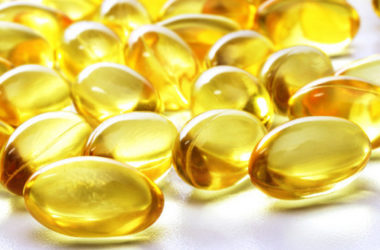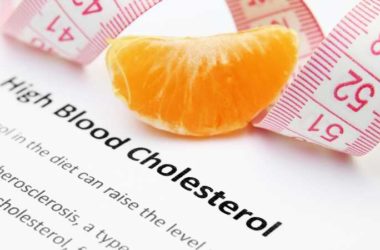Gas and bloating are two of the most uncomfortable topics that need to be discussed. People actually pass gas 12 to 25 times in a day as stated by Brigham and Women’s Hospital, and according to surveys about 30% Americans are affected by bloating. According to Cynthia Sass, MPH, RD, contributing nutrition editor at Health, a perfectly flat stomach all the time isn’t really normal since the intestines and stomach expands due to the liquids and solids consumed during meal times.
Having a ballooned belly doesn’t necessarily mean that there is something wrong with the food that you eat but you need to identify which foods cause belly bloat if you can no longer squeeze in your jeans.
Here is a list of the best and worst foods to eat to avoid getting a bloated belly:
Worst
- This may not sound like news to you but soybeans, lentils, beans, and even peas are known to cause gas. Although they are proteins in a pod they also have fiber and sugar that the body can’t absorb easily. As soon as the legumes get into the large intestine, the bacteria found in the gut will most likely have a party which can cause gas making your belly balloon. The best way to minimize its effects is to combine it with quinoa, rice or other whole grains. According to Sass, you’ll soon get used to eating legumes if you keep on eating them along with rice, veggies, nuts, fruits, beans and whole grains instead of sporadically.
- Eating an apple a day can certainly save you a trip to the doctor’s but it won’t keep your bloating away. According to Sass, aside from high amounts of fiber, apples also have sorbitol and fructose which are types of sugars that not many can tolerate. You can easily guess what happens when you eat apples. Gas and of course, that puffy feeling. On the other hand, apples are great as snacks. Before you give up eating apples, take into consideration that eating one can actually provide you with 4.5 grams of protein as well as 10% of the vitamin c that your body needs. Sass says that eating apples can actually help in reducing respiratory problems like emphysema, asthma, and bronchitis, as well as heart problems. You should time your consumption of apples and how much you’re going to eat. Stay away from apples if you plan on wearing a tight fitting outfit or even swimsuit. The same goes true with pears, prunes, and peaches.
- Salty foods. Sass said that eating salty foods can cause you to retain water which in turn will make you bloat. However, it’s not that easy avoiding consuming sodium. According to the reports by the CDC, about 90% of the American population have consumed more sodium than the recommended 2,300 mg per day for most individuals, 1,500 mg for the adults over 50 years of age, with hypertension, diabetes, and high blood pressure. Sodium is usually present in packaged and processed foods such as breads, soups, and other salty foods which make it difficult to avoid it altogether. If you do take more sodium that is necessary see to it that you increase your water intake to help get rid of excess salt in your body.
- If you have gas after eating a bowl of cereal and milk or after eating a few slices of cheese then you are most likely lactose intolerant. This means that your body doesn’t have the enzymes that are needed to break lactose down. This can cause gas to occur making your belly bloat. The best way to deal with bloating is to switch to non-dairy and lactose free products. The AGA or American Gastroenterological Association suggests taking lactase tablets as they can help your body digest foods that have lactose.
- Broccoli, kale and cabbage. These veggies are known as cruciferous vegetables that contain raffinose which is a type of sugar that will remain undigested until the time the bacteria found in the gut ferments it causing gas and bloating. However, don’t avoid them immediately. According to Sass, the more you eat foods that are rich in nutrient as well as high in fiber the healthier and stronger your digestive system will be. Simply put, just continue eating your leafy greens and if ever you can’t stop nibbling on Kale, steam it as this reduces the fiber and water content thus making it easier to digest. Although this won’t eliminate gas or even bloating, digesting it will be easier.
Best
- Foods that are high in potassium content like bananas, kiwis, avocados, pistachios, and oranges prevent your body from retaining water by balancing the sodium levels which in turn can prevent bloating due to excess sodium intake. What’s more, bananas have soluble fiber which can help prevent or relieve constipation. According to Sass, constipation can also cause bloating since the GI track is blocked or “backed up”.
- Yogurt with probiotics. Having good bacteria in your gut is a must! Probiotics can help your digestive tract in good condition while regulating digestion. Taking probiotic supplements is possible but why not have one for breakfast? Get rid of bloat by eating yogurt with active cultures. You can add a bit of sweetness to it by adding granola, jam, or even honey.
- Chamomile and peppermint tea. If you feel a bit bloated after eating, make a cup of chamomile or even peppermint tea. Both can help make your GI muscles relax so that the gas can dissipate. Aside from helping with the digestion, they can also relax and soothe making them useful in relieving discomfort in the stomach.
- Cucumbers are often used to help reduce the puffiness around the eyes and can actually be used with your belly. Sass says that cucumber contains the flavonoid quercetin that helps reduce the swelling. This particular vegetable can actually prevent the anti-inflammatory enzymes from being active so slice and eat it as is or go for a glass of cucumber water instead of your usual sugary drink.
- Ginger is often used as a remedy to treat muscle aches, seasickness, cramps, and colds. It can also be used to relieve bloating as ginger is known for its ability to aid digestion and reduce inflammation. According to Sass, ginger can help soothe and relax the GI tract thus bloating is significantly reduced. It is also known for having an enzyme that absorbs proteins so even puffiness induced by protein can be treated. You can add ginger to salad dressings and smoothies and recipes of the same nature including homemade tea.
- Fennel seeds. Fennel is the digestive system’s savior as it contains a compound that can relax any spasms in the GI tract to help relieve bloating and gas according to Sass. Fennel and fennel seeds are usually found in meat, bread, and sausages. You can either sip fennel tea or chew on the seeds after your meal.
- This vegetable can help fight bloating. Although it does make your urine smell it can make you pee more thus helping you flush any excess water in the body to relieve bloating and any discomfort. Sass says that asparagus also has prebiotics that encourage the growth of “good” bacteria which helps in keeping your digestive health properly balanced to prevent bloating and gas. It is also known to contain insoluble and soluble fibers that promote good digestive health.
- This fruit has an enzyme that breaks down the proteins found in your GI system making digestion easier. Sass also says that this particular fruit has fibers and anti-inflammatory properties that make your digestive tract stronger. You can either the fruit whole or make a smoothie out of it.












